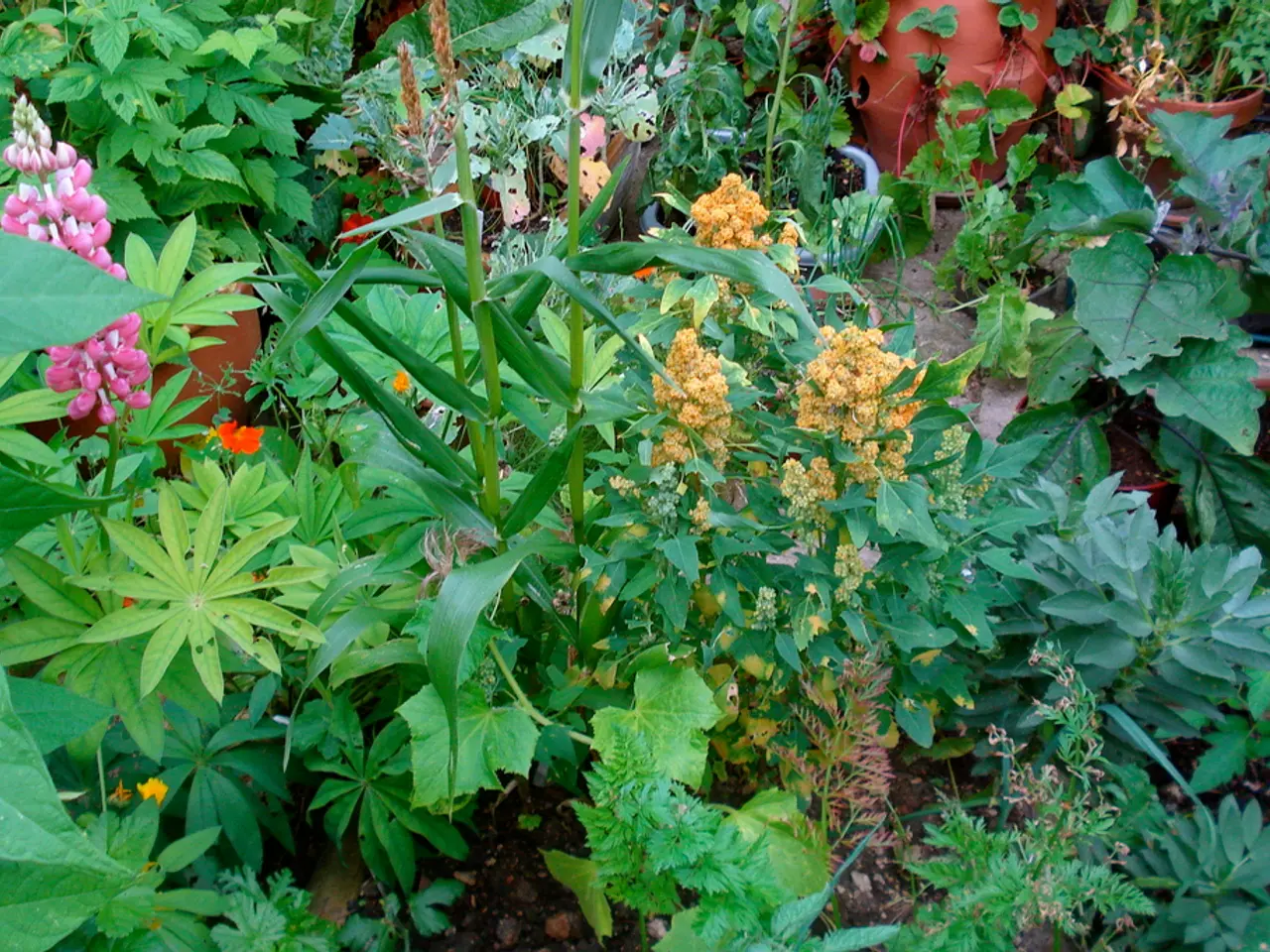Thousands of plants to be planted by GSK in Wołomin on April 11th, 2025
Blossoming Schools in Wołomin: Green Initiative Enhances Learning Environment
In a remarkable initiative, our website and volunteers from GSK have partnered to transform the educational institutions of Wołomin, Poland. On April 11, the greening initiative took place, focusing on Kindergarten No. 5 "Puss in Boots" and Wacław Nałkowski High School No. 1.
The schools' grounds have been transformed, with nearly 3,000 plants now flourishing. Over 2,000 flower bulbs, including tiger lilies, gladioli, freesias, and anemones, have been planted, adding a splash of colour and vitality to the spaces. The garden's composition now boasts a light and natural rhythm, thanks to the addition of ornamental grasses like fountain grass, 'Ice Dance' sedges, fescues, molinias, and miscanthus.
The garden includes a variety of shrubs such as spireas, mock oranges, forsythias, viburnums, hibiscuses, dogwoods, potentillas, and tamarisks. These additions not only beautify the schools but also support a variety of pollinators and wildlife, contributing to local climate resilience.
The initiative aimed to promote education and cooperation. It has achieved this goal by offering multiple significant benefits. For instance, incorporating natural elements into educational spaces can enhance students' concentration, reduce stress, and stimulate creativity. The sensory stimulation provided by various plants promotes cognitive function, improving knowledge retention and encouraging collaborative learning.
Moreover, the diverse vegetation can transform underutilized or concrete areas into green oases. Such spaces serve as outdoor classrooms, sensory gardens, or relaxing zones where students can explore, play, and connect with nature, enriching their learning experience beyond traditional classrooms.
The hands-on interaction with diverse plant species and outdoor environments fosters students' understanding of ecological systems and conservation. This fosters responsibility, sustainable practices, teamwork, leadership, and resilience. Furthermore, green spaces promote physical activity and offer calming natural surroundings that support mental health and wellbeing, making the school environment more harmonious and conducive to learning.
The greening initiative brought joy and positivity to the educational institutions in Wołomin. The added plants will soon bloom, delighting the youngest eyes. The transformation of the kindergarten grounds into a garden has created multifaceted benefits, including environmental sustainability, enriched educational opportunities, improved physical and psychological health, and fostering a stronger connection to nature and community responsibility among students.
This initiative is a testament to the power of collaboration and the positive impact that green spaces can have on our communities and future generations.
[1] Berman, M. G., Jonas, J., & Kaplan, S. (1984). The impact of nature experience on cognition, affect, and behaviour. Journal of Environmental Psychology, 1(4), 151-170.
[4] Kellert, S. R. (2005). Biophilia: The human bond with other species. W. W. Norton & Company.
[5] Wolverton, B. C., & Wolverton, J. J. (1996). Plants for indoor air pollution abatement. NASA Technical Reports Server.
In light of the green initiative, the transformation of the schools' grounds into a home-and-garden setting could potentially extend beyond learning environment enhancement and foster a lifestyle that values and encourages gardening. The diversity of plants, from flower bulbs to shrubs, could offer students opportunities for hands-on learning about home-and-garden care, contributing to the development of sustainable practices and lifestyles. These outdoor spaces can become pockets of home-and-garden education, enriching the students' lifestyle by integrating practical skills, ecological knowledge, and appreciation for nature.




